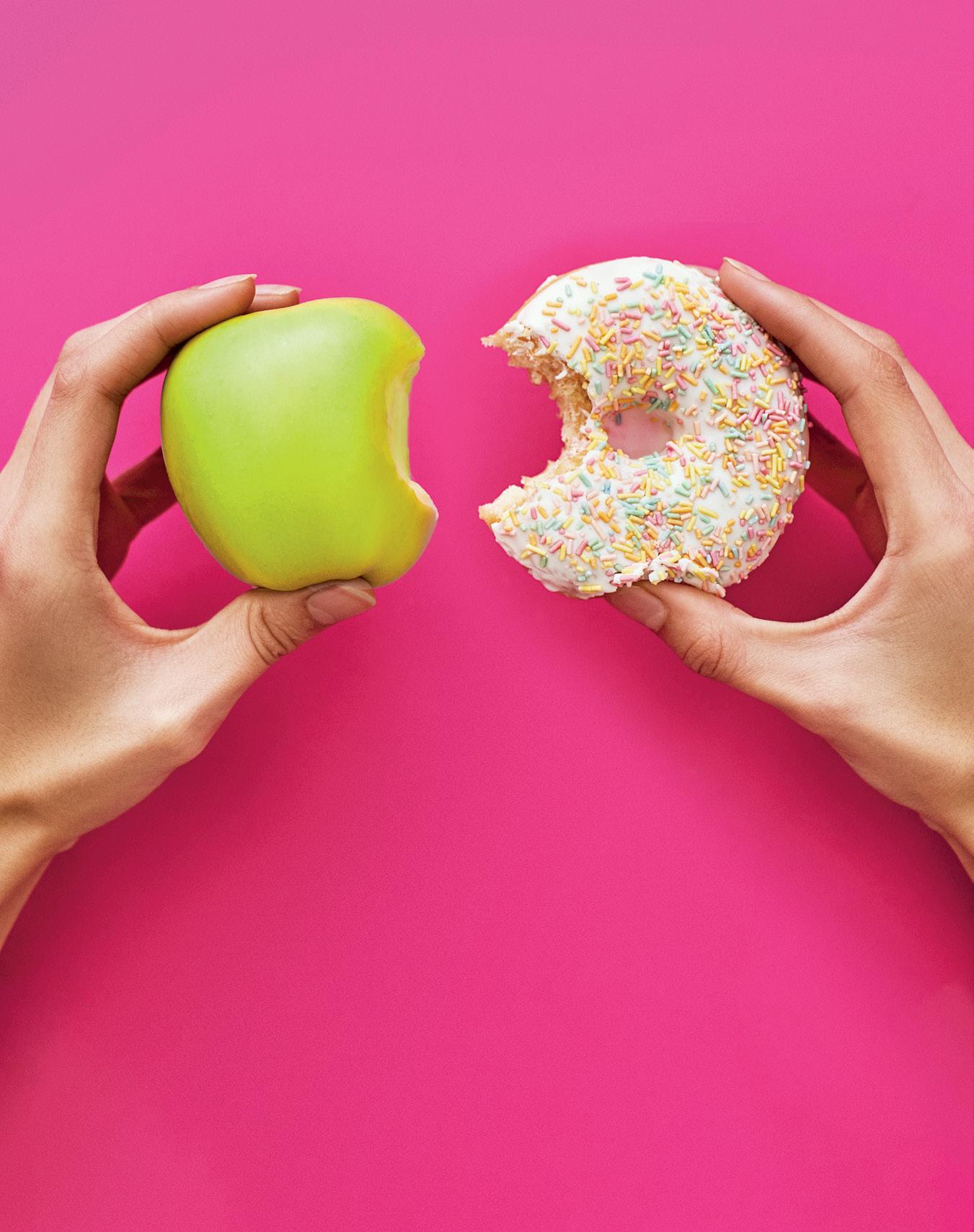
8 minute read
The Circuit
The
NEWS | TIPS | FACTS CIRCUIT
Advertisement
Junk food confusion
Ever notice how the day after a lousy night of sleep, you’re more inclined to reach for a croissant for breakfast or snack on a bag of chips when that 3pm slump hits? You could chalk this up to your motivation, but research from Northwestern University found that your likelihood of consuming sugary or fried foods the day after hitting the snooze button could have more to do with your brain – and nose. When sleep deprived, your olfactory system – or sense of smell – sharpens so it can better differentiate between food and non-food odours. Unfortunately, your brain doesn’t have the capacity to receive those messages as well as it usually would, and you’ll likely overcompensate for the miscommunication by grabbing the most convenient and energy-dense option you can get your hands on. Two areas of your brain that are responsible for sending messages to each other regarding smell, taste and how much food is in your stomach also get their wires crossed when you haven’t clocked enough time between the sheets, making it more likely that you’ll overindulge.
Chill on ice baths
Ice-cold baths are a popular recovery method among die-hard athletes who list reduced delayed onset muscle soreness (DOMS), less muscle damage and better hypertrophy as benefits. While expert opinions have been mixed as to whether the results are legit or just a placebo effect, researchers put ice baths to the test after resistance training using two groups of subjects. One group relaxed in a room for 15 minutes, while the others took an icy 15-minute dip. Surprisingly, the ice-bath group showed biomarkers that were consistent with slower recovery and growth – an effect scientists say occurs because the body is more focused on keeping the tissues warm in frigid temps than helping them grow. Just a side note: muscle strength was not negatively affected. Phew!
2 weeks

Newbie gains are real! Non-athletes who trained their legs just once per week for three weeks maintained their strength after two weeks of detraining. Jealous much? Source: European Journal of Applied Physiology
Use it or lose it?
Had a bit of time off the gym lately? Relax: if you exercise consistently, your muscle memory will cover for you for up to two weeks of missed workouts before you really experience strength loss, according to most experts. Your cardiovascular ability declines more rapidly, however, with your VO 2 max and performance endurance dropping after around 12 days of being cardio-free.

Overtraining and your brain Killing yourself in the gym? Researchers in France discovered that overtraining to the point of endurance burnout can also affect the area of your brain that controls decisionmaking, causing you to act more impulsively. The take-away? It’s worth scheduling rest days.
Timing is everything
Not sure if you should eat before or after cardio? A study published in the Journal of Clinical Endocrinology and Metabolism says to sweat before you snack. In the trial, two groups of cyclists either consumed a shake or water before their rides, but it was the fasted group who scorched the most fat during their workouts. What’s more, they also developed greater improvements in insulin sensitivity and their muscles were better equipped to manage blood sugar.
Best post-workout foods Here’s the fuel to reach for after your workout.
CARBS
Sweet potato: Boosts immunity. Wholegrain bread: Fuels muscle and brain. Quinoa: Protein and fibre source.
PROTEINS
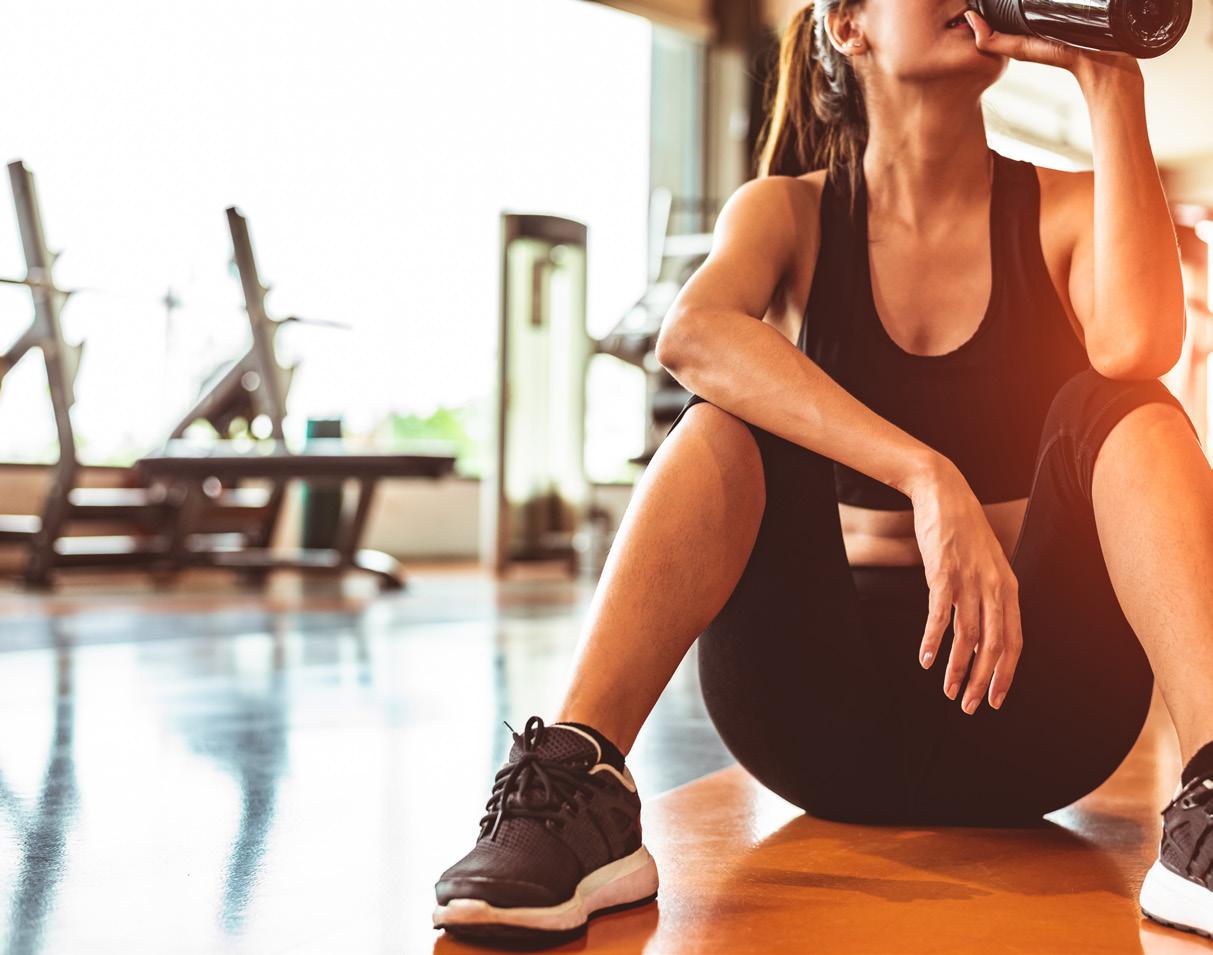
Whole eggs: Nutrient-transporting fat and high-quality protein. Smoked salmon: Omega-3s to reduce DOMS.
DAIRY
Ricotta cheese: Sparks muscle growth. Cottage cheese: Protein and leucine sources.
67%

One cup of asparagus provides this much of your daily recommended intake of folate – a vitamin B that supports brain and nervous system health.
Fashionably fit
We are absolutely obsessed with the new generation of fashion-forward meal prep bags currently trending on our Instagram feed. Our pick of the bunch? Mealami. Their streamlined and stylish leather-look handbags carry all of your meals in a conveniently insulated front section, while your laptop and everyday essentials fit in one of the many zipped compartments and pockets. You can check out their full collection starting from just $79.95 – including backpacks and gym bags for the man in your life – on their website. $199.95, mealami.com.au
EDITOR TESTED

Enter code STRONG10 at checkout to receive 10 per cent off.



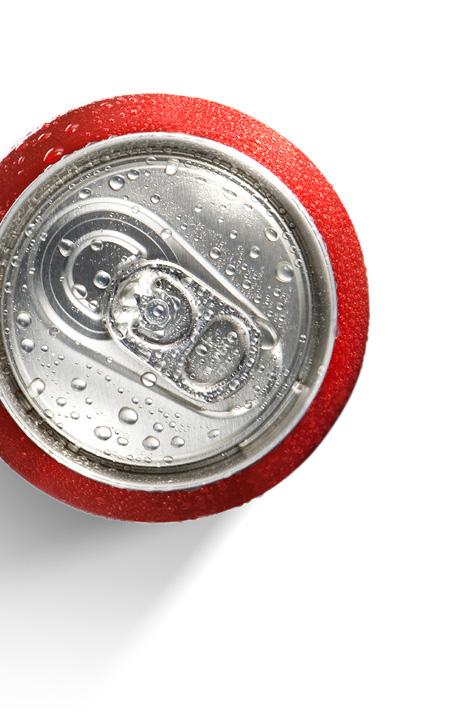
SOFT DRINK STATS ▸ Soft drink ▸ Artificially sweetened soft drink Increases your risk of diabetes by: ▸ 16 per cent ▸ 18 per cent A can of this each day:

Cholesterol and bone health A new study published in Annals of the Rheumatic Diseases found that some cholesterol-lowering drugs seem to have an impact on bone health. Taken in low doses, the medication may protect against osteoporosis, but in high doses may threaten bone health. Talk to your doc if you’re concerned about the relationship between cholesterol meds and your bones.
Red meat reduction
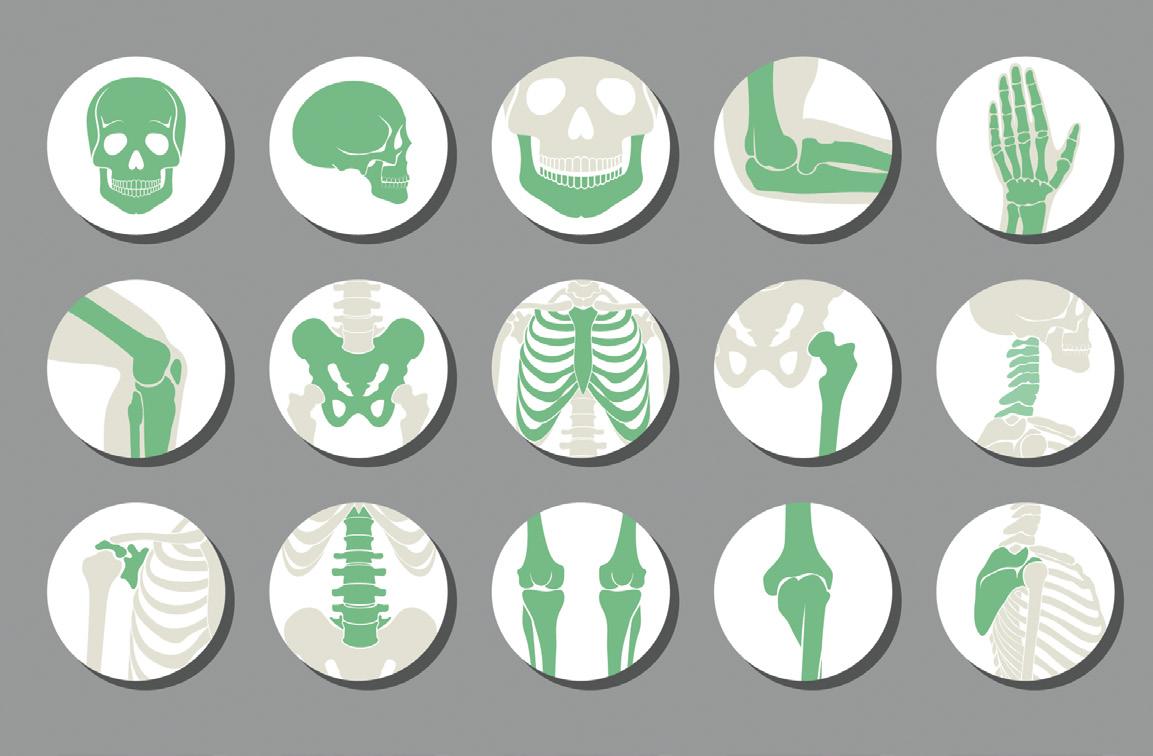
For the sake of your health, do you have to give up those juicy steaks entirely? Red and processed meats have been blamed for increasing LDL cholesterol, leading to blockages and higher risk of heart attack. However, researchers at the University of Nottingham found that occasionally swapping red meat for chicken and fish, or even cutting down on your red meat portion size, leads to a significant drop in the bad stuff. As long as your meat consumption is varied, you should be able to have your steak, and eat it, too.

Can relaxing make you more anxious?

Worrying, interrupted
Relaxation methods such as meditation and breathing exercises have become all the rage in our constantly plugged-in, on-the-go lifestyles, but research from the Journal of Affective Disorders found that taking moments to focus on relaxing actually caused more anxiety if you already suffer from an anxiety disorder. Experts believe this is because the continuous worry that these participants experience is a coping mechanism used to lessen the perceived emotional shifts they may feel throughout the day – ‘worry about it now so you don’t have to worry about it as much later’ way of thinking – and relaxation asks them to put a pause on this habit. Researchers say practising exposure techniques and mindfulness training for those who suffer from relaxation-induced anxiety could help them to let go and live in the moment, improving their responses over time.
Healthy diet, happy mind After just three weeks of adding in more fruit, vegetables, fish and olive oil into their diet and reducing processed food intake, young adults reported a significant reduction in symptoms of depression.
35%
People with the most optimistic outlooks have a 35 per cent lower risk of cardiovascular events. Source: JAMA Network Open
Step-by-step meditation Follow these four easy guidelines for a few relaxed moments of chill.
1. Find a comfortable spot where you can sit and relax. No lotus position required.
2. Be present for each inhalation and exhalation. Notice the length, sound and feeling of each breath.
3. When your mind wanders, notice where it’s wandering to, and gently bring it back to the breath.
4. Aim for a few minutes, building up to 10 to 15 minutes if you can.
The power of three
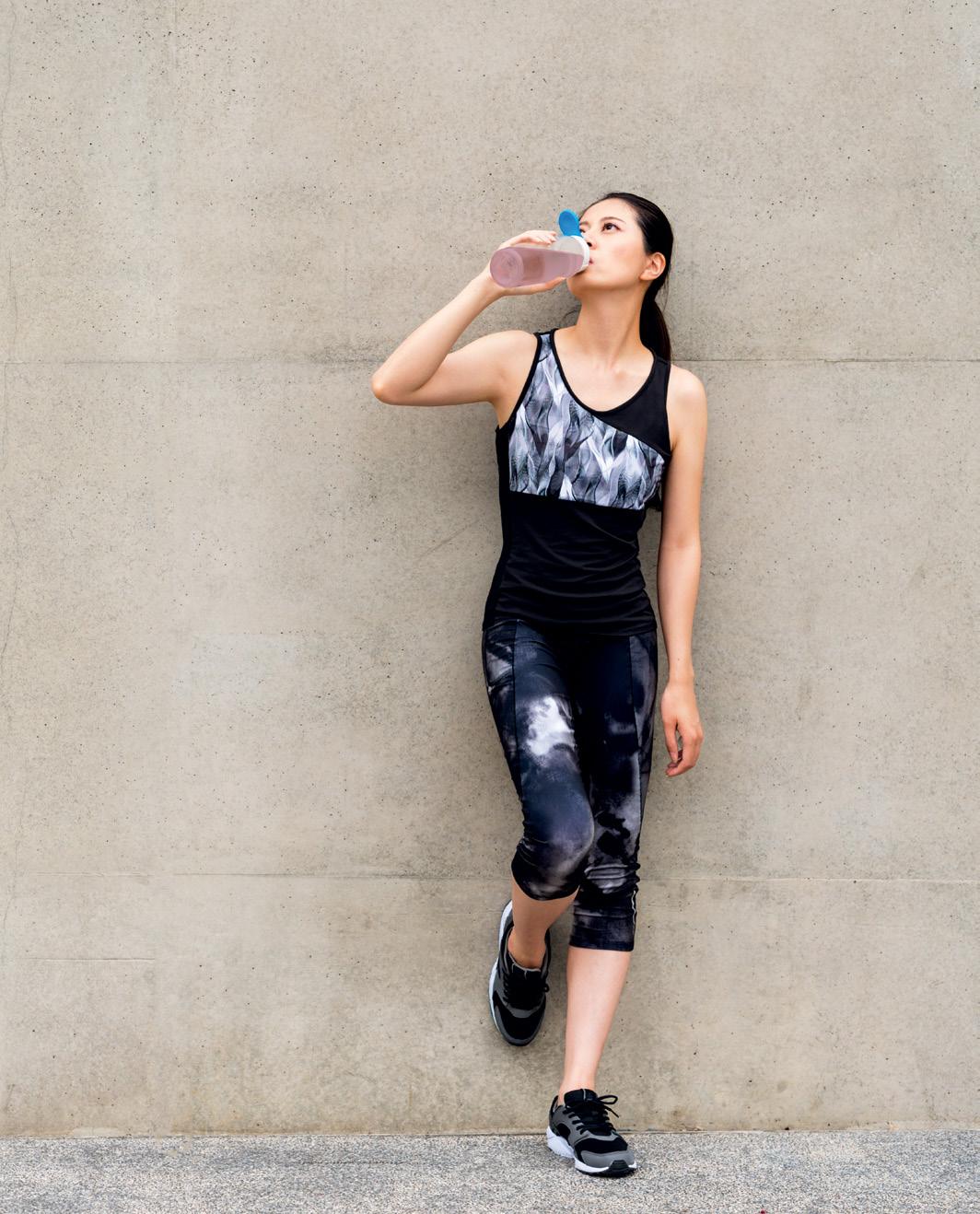
Check the ingredients in your pre-workout supplements! If your pre-workout supplement gives you the jitters, we may have a solution for you. The Journal of the International Society of Sports Nutrition found that when caffeine was mixed with amino acids theanine and tyrosine, study subjects experienced improved performance in activities that required rapid mental and physical responses and movement accuracy, but didn’t experience any of the symptoms associated with caffeine overload. While all three components on their own seemed to cause unwanted mental side effects such as headaches or nervousness, when combined, caffeine, tyrosine and theanine worked synergistically to increase performance without altering mental state.
40%
Muscle weakness was this much higher in adults aged 60 and over who were deficient in vitamin D compared to those who got enough. Source: Trinity College Dublin
Flip to page 58 for more benefits of slashing your meat intake!
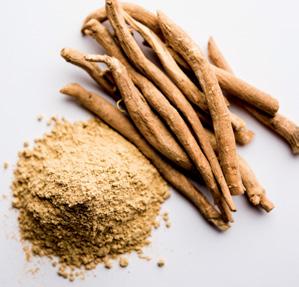
Supplement spotlight: Ashwagandha
What it is: A herb used in Ayurvedic medicine. Multiple parts of the plant can be used, but most supplements contain its root extract. What it does: Studies suggest it lowers anxiety, reduces depression and fatigue, increases power output while resistance training, and maintains cholesterol levels, but research is limited. Dosage recommendation: Take 300mg to 500mg with food. Study subjects experienced relieved symptoms of anxiety when supplementing daily, but results are inconclusive if Ashwagandha should be cycled or not. Always consult your doc first. Source: Examine.com











